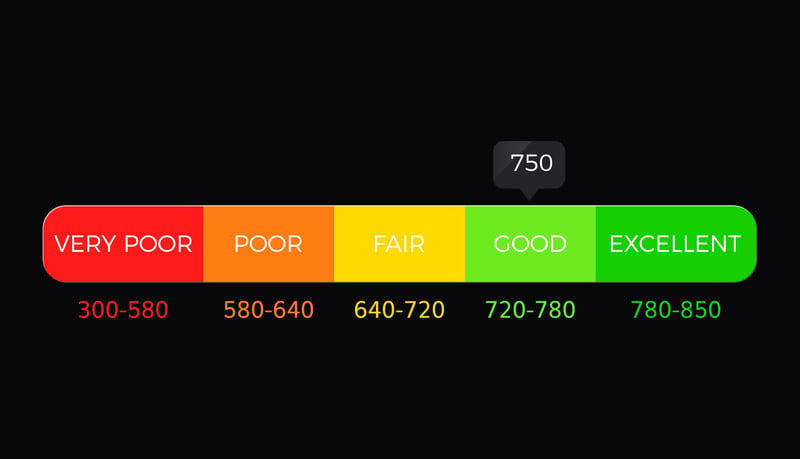
Steps to get your credit rating back toward 720.
We all know the value of a good credit score. We all try to maintain one. Sometimes, though, life throws us a financial curveball and that score declines. What steps can we take to repair it?
Reduce your credit utilization ratio. Your credit utilization ratio (CUR) is the percentage of a credit card’s debt limit you have used up. Simply stated, if you have a credit card with a limit of $1,500 and you have $1,300 borrowed on it right now, the CUR for that card is 87%. Carrying lower balances on your credit cards tilts the CUR in your favor and promotes a better credit score.1
Review your credit reports for errors. You probably know that you are entitled to receive one free credit report per year from each of the three major U.S. credit reporting agencies – Equifax, Experian, and TransUnion. You might as well request a report from all three at once. As the federal government’s Consumer Financial Protection Bureau notes, you can do this at annualcreditreport.com. About 20% of credit reports contain mistakes. Upon review, some borrowers spot credit card fraud; some notice botched account details or identity errors. At its website, the CFPB offers sample letters and instructions you can use to dispute errors.2
Behavior makes a difference. Credit card issuers, lenders, and credit agencies believe that payment history paints a reliable picture of future borrower behavior. Whether you pay off your balance in full, whether you routinely max out your account each month, the age of your account – these are also factors affecting that portrait.3
Think about getting another credit card or two. Your CUR is calculated across all your credit card accounts, in respect to your total monthly borrowing limit. So, if you have a $1,200 balance on a card with a $1,500 monthly limit and you open two more credit card accounts with $1,500 monthly limits, you will markedly lower your CUR in the process. There are potential downsides to this move – your credit card accounts will have lower average longevity, and the issuer of the new card will, of course, look at your credit history.1
Think twice about closing out credit cards you rarely use. When you realize that your CUR takes all the credit cards you have into account, you see why this may end up being a bad move. If you have $5,500 in consumer debt among five credit cards that all have the same debt limit, and you close out three of them, accounting for $1,300 of that revolving debt, you now have $4,200 among three credit cards. In terms of CUR, you are now using a third of your available credit card balance whereas you once used a fifth.4
Beyond that, 15% of your credit score is based on the length of your credit history – how long your accounts have been open and the pattern of use and payments per account. This represents another downside to closing out older, little-used credit cards.3
Alternative credit scoring systems have also emerged. If your credit history has taken a big hit or is spotty, they may end up helping you out. TransUnion’s CreditVision Link, the LexisNexis Risk View Score, and the FICO XD2 and UltraFICO scores compiled by Fair Isaac Co. (FICO) are examples. They introduced new scoring criteria for borrowers who may be creditworthy, but lack sufficient credit history to build a traditional credit score or need to rebuild their scores. Cell phone payments, cable TV payments, property records, and other types of data are used by these systems in order to set a credit score.5
Creekmur Wealth Advisors may be reached at 309-925-2043 or Info@Creekmurwealth.com.
This material was prepared by MarketingPro, Inc., and does not necessarily represent the views of the presenting party, nor their affiliates. This information has been derived from sources believed to be accurate. Please note - investing involves risk, and past performance is no guarantee of future results. The publisher is not engaged in rendering legal, accounting or other professional services. If assistance is needed, the reader is advised to engage the services of a competent professional. This information should not be construed as investment, tax or legal advice and may not be relied on for the purpose of avoiding any Federal tax penalty. This is neither a solicitation nor recommendation to purchase or sell any investment or insurance product or service, and should not be relied upon as such. All indices are unmanaged and are not illustrative of any particular investment.
Citations.
1 - nerdwallet.com/blog/finance/credit-utilization-improving-winning/ [10/29/19]
2 - consumerfinance.gov/about-us/blog/common-errors-credit-report-and-how-get-them-fixed/ [2/5/19]
3 - cnbc.com/select/what-is-a-credit-score-and-how-to-check-yours-for-free [10/23/19]
4 - fool.com/the-ascent/credit-cards/articles/dont-close-that-credit-card-without-asking-yourself-these-6-questions/ [10/5/19]
5 - creditcardinsider.com/blog/check-free-fico-score-every-other-free-credit-score/ [9/17/19]


